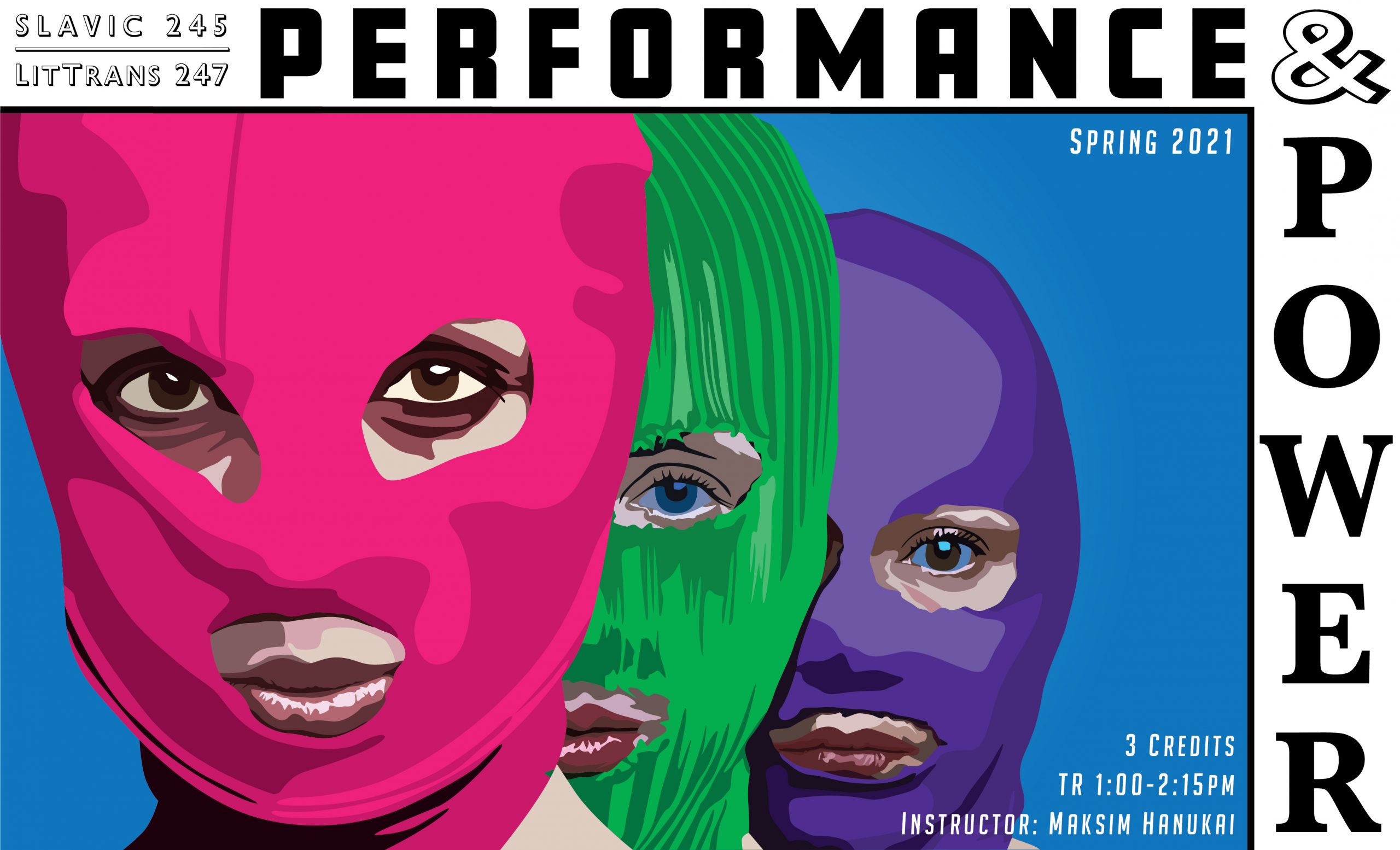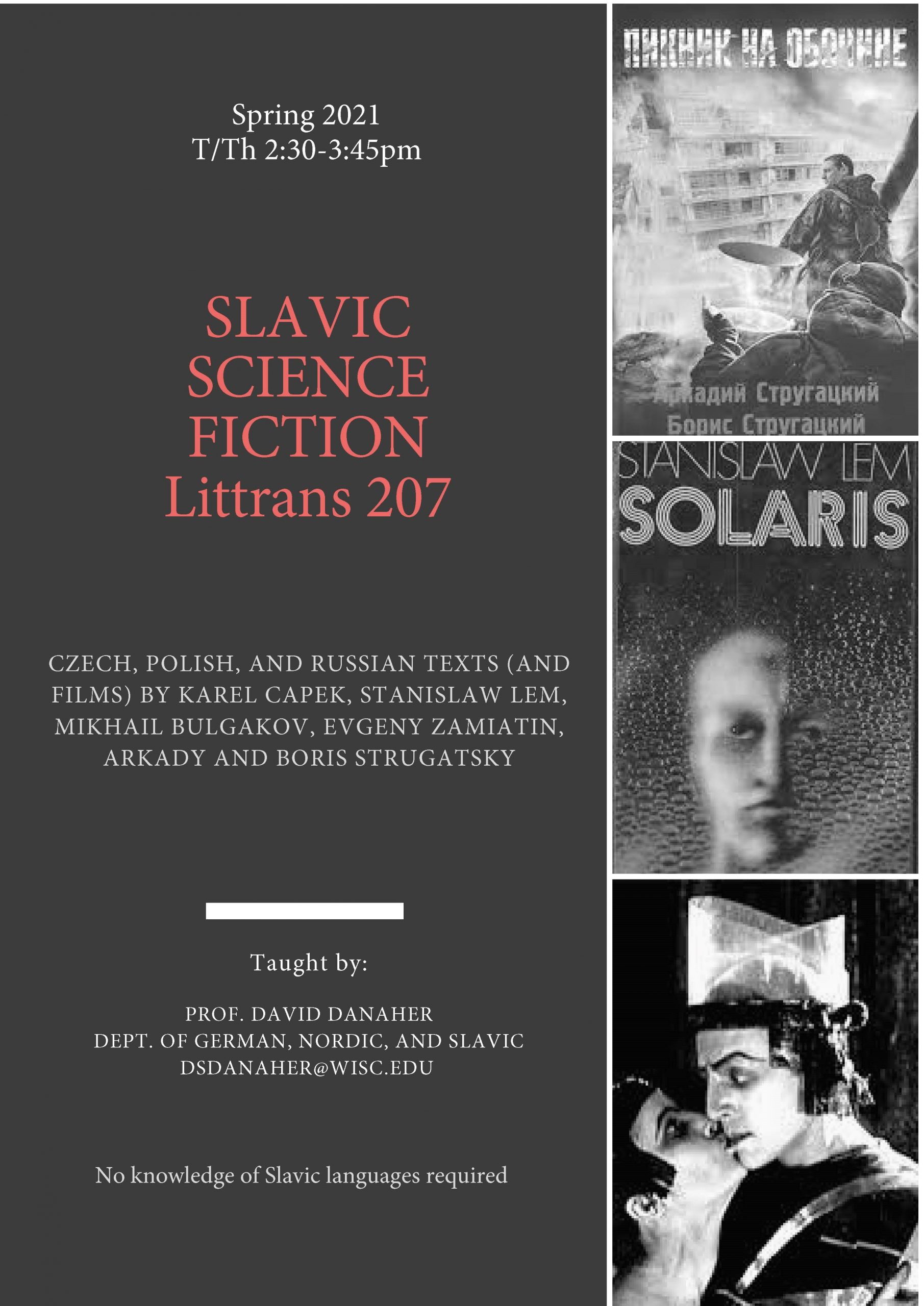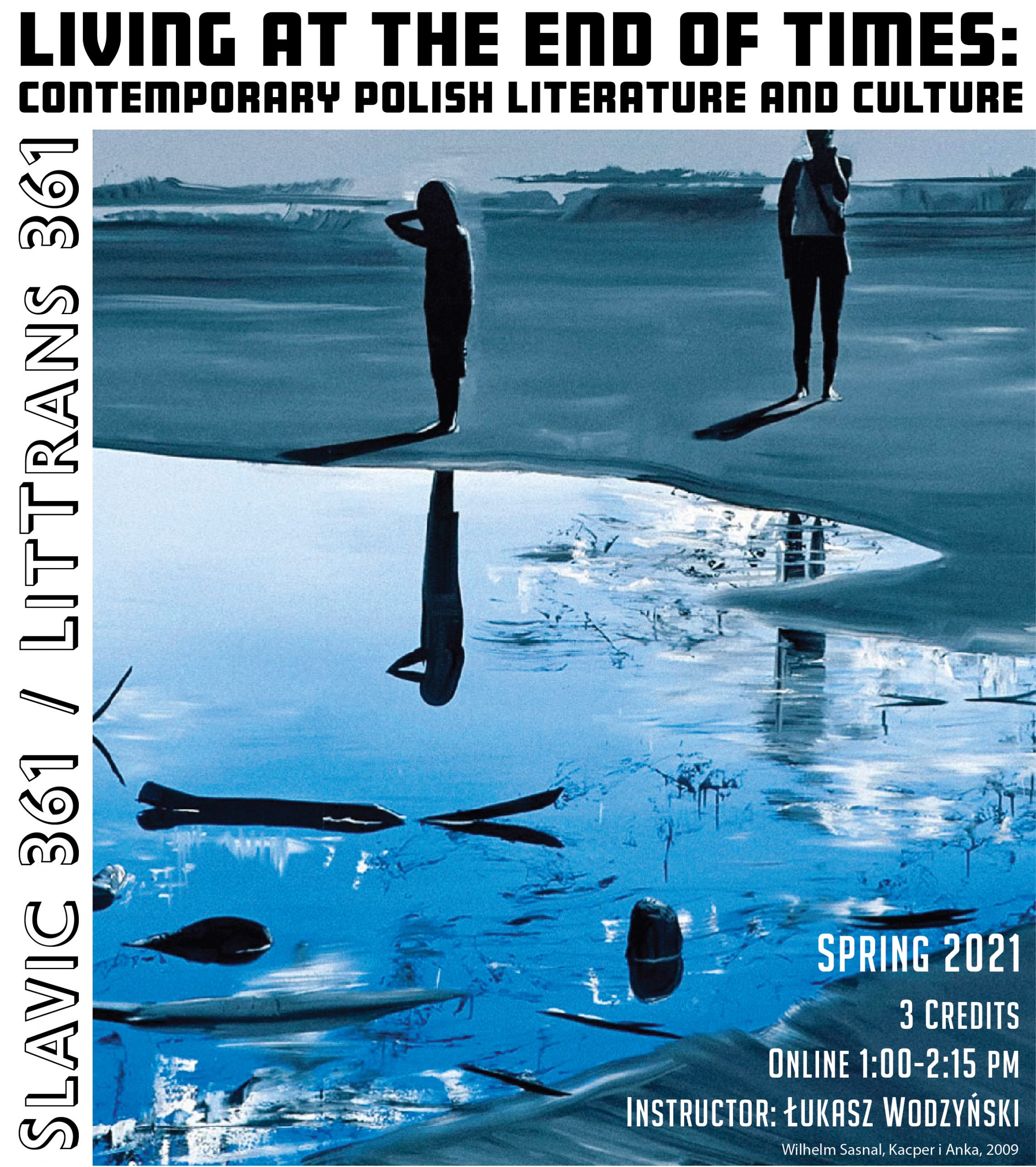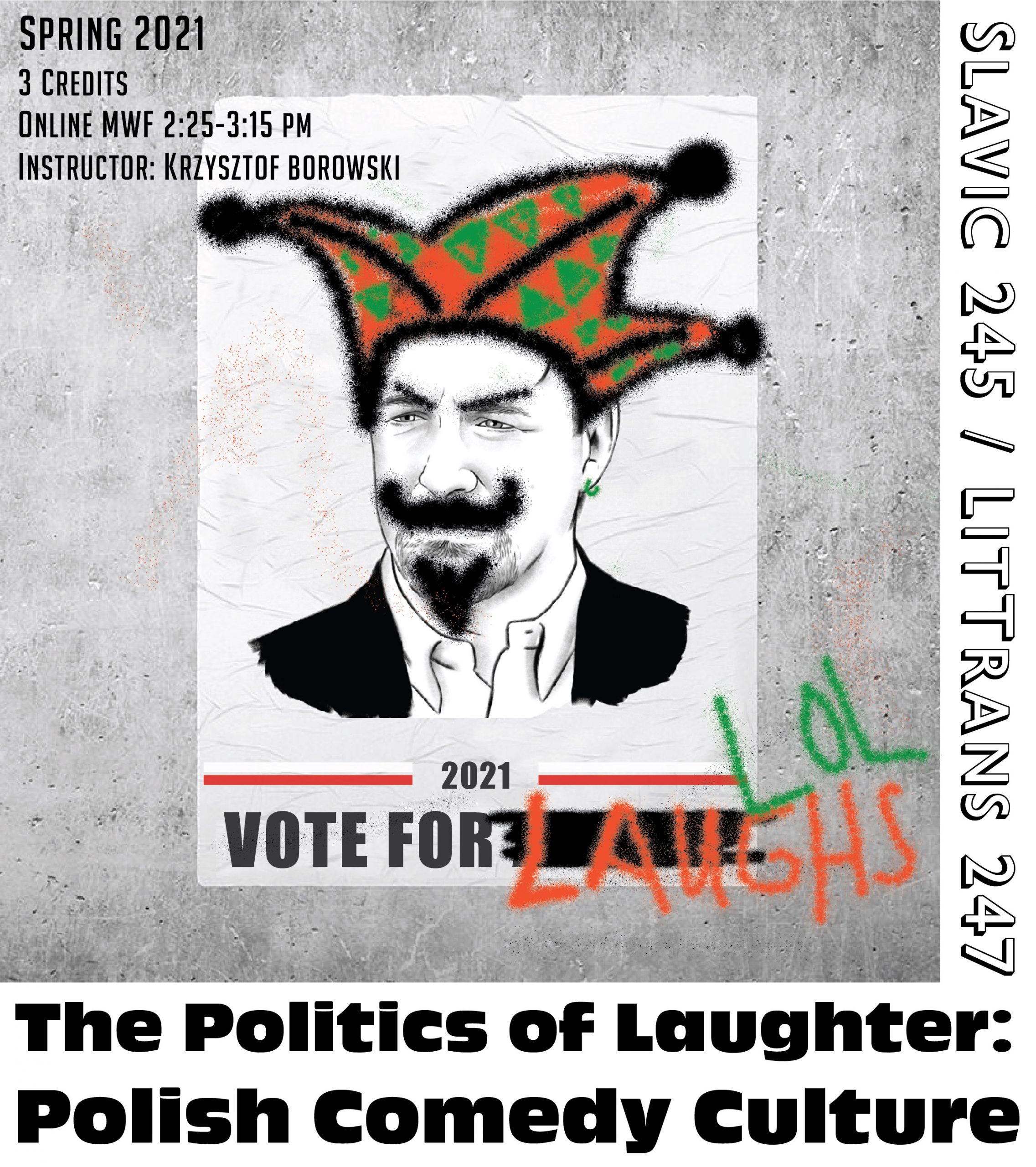SLAVIC 245/LITTRANS 247 – Performance & Power
What does it mean “to perform” and what does performance do? How can performance be harnessed to challenge or impose oppressive structures of power? In this course, we will attempt to answer these and related questions by examining a range of performance theories and practices from Russia, Europe, and the United States. Focusing on the work of artists and authors like Nikolai Evreinov, Bertold Brecht, Marina Abramovic, Pussy Riot, Moisés Kaufman and Sergei Loznitsa, we will learn about political theater in the 20th and 21st centuries, the emergence and evolution of performance art and art actionism, the social and aesthetic functions of documentary film and theater, and the recent performative turn in New Left poetry. We will also extend our inquiry beyond the artistic sphere to examine performative practices in modern political and everyday life — including show trials, historical reenactment festivals, geopolitical trolling and disinformation campaigns, and collective memory rituals. This course is open to students at all levels. All readings and materials will be available in English. Teaching modality: remote and synchronous.
LITTRANS 207 – Slavic Science Fiction
In the US, science fiction (SF) is thought of as a quintessentially American (or American-British) genre. This course explores the rich tradition of Slavic contributions to SF. We survey major writers and their works in the Czech, Polish, and Russian contexts, most of which are little known in the US but are nonetheless fundamental to the genre. We read these works as both anchored in their particular cultural-historical circumstances and also for their contribution to the development of SF as a world genre. SF is perhaps the dominant contemporary genre for sociocultural commentary and critique aimed at reimagining the world in which we live, and Slavic SF texts have played a defining role in establishing SF as such. Since the rise of film coincides with the rise of modern SF and since the intertextual dimension in SF literature is particularly strong, we also compare and contrast the literary works with, where available, their film adaptations. This course is open to students at all levels. All readings and materials will be available in English. Teaching modality: remote and synchronous.
SLAVIC 361/LITTRANS 361 – Living at the End of Times: Contemporary Polish Literature and Culture
In this course, we explore one of the most unique and fascinating contemporary cultural scenes. In our entertaining journey through present-day Polish literature, film, drama, and popular culture, we will address questions such as: What is the role of culture in a free society? How does culture mediate our relationship with the past? How does it help us understand the present? What does it mean to live in an age where all the major narratives of Modernity are coming apart? What does it mean to be living at the end of times? Teaching modality: remote/synchronous.
SLAVIC 245/LITTRANS 247 – The Politics of Laughter: Polish Comedy Culture
What makes comedy a powerful political tool? Can laughter become a weapon against totalitarian regimes? How do comedy and humor help subvert power relations in society? We explore these and similar questions by analyzing political comedy in various formats (film, television, literature, music, internet memes, etc.) using examples from modern Polish culture. Due to its strong tradition of political comedy amidst a turbulent history – wars, communism, totalitarian rule, and social protests – Poland is uniquely positioned to serve as a cultural case study of how individuals and societies can embrace and survive change, political turmoil, and an uncertain future. This course is open to students at all levels. All reading and materials will be available in English. Teaching mode: remote and synchronous.



